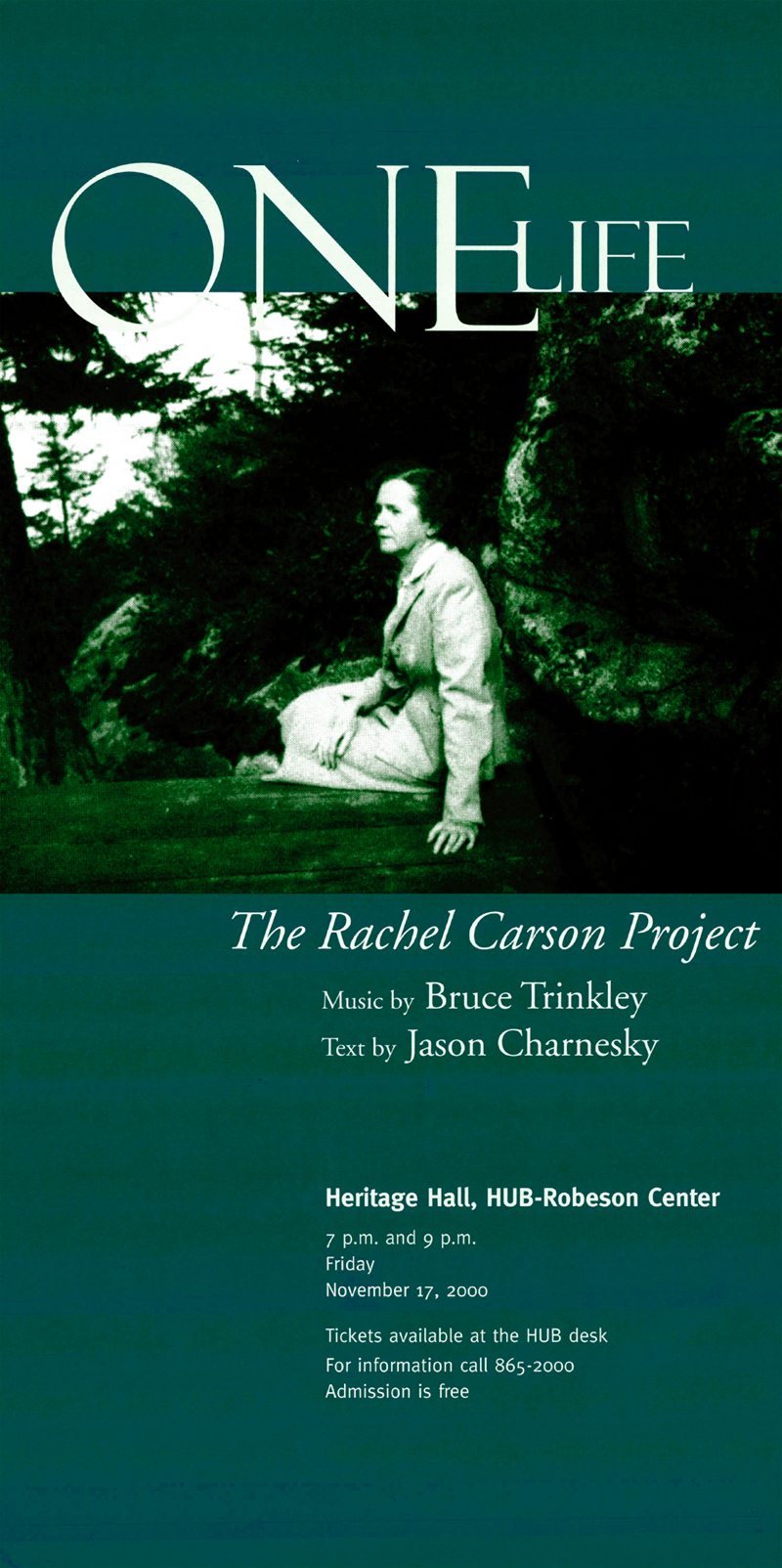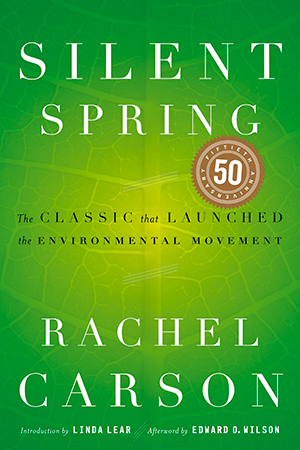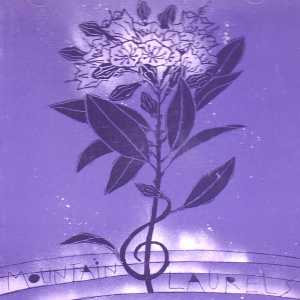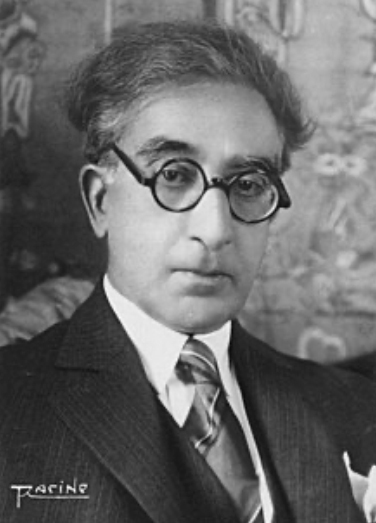** Indicates the publication is out of print. Contact Bruce to purchase octavos.

One Life: The Rachel Carson Project Cantata in nine movements for women’s chorus, alto and soprano soloists, speaker and piano or chamber ensemble (flute, horn, violoncello and piano) with optional video projections. Text by Jason Charnesky, based on the life and writings of Rachel Carson (1907-1964).
The original cantata was scored for women’s voices and has been adapted for mixed voices. The audio clips below are performed by the
Oriana Singers, Discantus and two soloists: Elisa Matthews, soprano, and Jan Mianulli, mezzo-soprano.
Download narrator’s script and lyrics. Download piano-vocal score. Individual movements may be viewed or listened to below.
2. The Elements of Life Chorus View score. Listen to Oriana Singers.
3. Science Is a Job for Men Women’s Quartet View score. Listen to Discantus.
4. A Walk in the Woods Soprano solo View score. Listen to Elisa Mathews, soprano
5. Spring Song Chorus View score. Listen to Oriana Singers.
6. The Watery Sea Soprano solo View score. Listen to Elisa Mathews.
7. The Airy Sea Alto solo View score. Listen to Jan Mianulli, alto.
8. The Song of Control Women’s Quartet View score. Listen to Discantus.
9. Silent Spring Chorus View score. Listen to Oriana Singers.
10. Rachel’s Creed Soprano, Alto, Speaker and Chorus View score. Listen to Oriana Singers.
11. Finale Soprano, Alto, Speaker and Chorus View score. Listen to Oriana Singers.

March came this year
with no butterflies.
The skies that should have carried
clouds of gnats and graceful nymphs
is empty.
No cricket sings.
No grasshopper wings
from grass to leaf.
And all of spring
is silent.
April came this year
but the sparrow did not follow.
No robins roundelay,
no oven-bird, no jay.
No buzz of beeand the apple tree
does not bear fruit.
And all the fields
and all the sky
is silent.
May came this year
but no hawk flew about.
Silent rivers without trout.
And no tree frogs sang,
and the forest never rang
with the symphony of life.
And all the air,
and all the waters,
and all the earth
is silent.
A cloud of poison came
and gave
a silent spring.
Two choral cycles for women’s voices from MOUNTAIN LAURELS: A Choral Symphony
SEASONS for women's chorus and piano or string orchestra and harp.
THE DESCANT OF MAN: Three Evolutionary Love Songs for women’s chorus and piano.

Seasons Four choruses for SSAA and piano or string orchestra and harp. Yelton Rhodes YR4900
Seasons, the choral cycle for women’s voices from Mountain Laurels: A Choral Symphony was written for and premiered by the Oriana Singers, directed by Lynn Drafall. The poems were all by Central Pennsylvania poets. The essence of each poem is captured in the variety of styles used in the settings, from autumnal lyricism to poignant winter to the blossoming of spring and concluding with the exuberant celebration of summer. A feast for the singers in a celebration of the seasons.
1. Lovely October Poem by Joseph Grucci (1908-1992). View score sample. Listen to Oriana.
2. Elm Trees Poem by Emily Grosholz. View score sample. Listen to Oriana.
3. Notebook for May Poem by Deborah Austin (1920-2013). View score sample. Listen to Oriana.
4. Sun Poem by Melinda Mucha. View score sample. Listen to Oriana.
Full score (chorus, harp and strings) and parts available from the composer.
**The Descant of Man Three Evolutionary Love Songs for SSA, piano and optional string bass. Alliance AMP 0229
Composer’s Note:The title is a triple pun on both Charles Darwin’s The Descent of Man (1871) and the name of the choral group for which the set was written, Discantus, the small elite ensemble from the Oriana Singers at Penn State. The trilogy is also the centerpiece of Mountain Laurels: A Choral Symphony written to celebrate the Centenary of State College, PA. The various choral cycles of humorous pieces were collectively entitled Frothiana, itself another triple pun on the humor magazine that was the source of many of the texts, Penn State Froth, and the iconic choral work written to celebrate the 200th Anniversary in 1959 of Amherst, MA, Frostiana, settings of Robert Frost poems by Randall Thompson. So heavy a load for these slender pieces to bear! But with their ebullient choral and piano writing and the feisty texts from the 1940s that poke fun at men and their sexual urges, The Descant of Man enables women to celebrate their own identity with humor and sauciness.
You can purchase octavos for less than a tamale ($1.00). And download the scores and listen to the premiere performances by the inimitable women of Discantus. These pieces are ideal for progressive high school and college women, as well as women of experience. Audiences will delight in the rare treat of truly bawdy and cartoonish humor, all presented with smiles and laughter.

1. On Anthropoids text from Penn State Froth, August 1942.
View octavo. Listen to Discantus.
2. Natural Love text from Froth, Autumn 1946.
View octavo. Listen to Discantus.
3. Burning Kisses text from Froth, February 1949.
View octavo. Listen to Discantus.He asked for burning kisses.
She said in accents cruel –
“I may be a red-hot mamma,
But I ain’t nobody’s fuel.”
Performances by Discantus from the Oriana Singers. Order octavos from Bruce.
the story of eve Five choruses from the opera Eve's Odds for SSAA chorus and piano or organ.
Texts by Jason Charnesky.
the story of eve is drawn from the one-act opera eve's odds. The cycle tells the story of the opera but in condensed form. In Alleluias, a celestial choir sings a song of stately praise that evolves into a rollicking cha-cha before they remember their dignity. O Eve, Beware is a song of warning to Eve as she contemplates eating the apple proffered by the Snake. Luckily, her Guardian Angel arrives to protect her. But ultimately Eve does partake of the apple and the angel choir sings The Lament of Fallen Man, the heart and message of the opera. In Childhood Ends the choir sings of how the Fall has changed the world and mankind's destiny. the story of eve can be performed as a church cantata or a concert selection. Your Guardian Angel may be excerpted to be performed by or for young listeners.
View notes and full score. View eve’s odds on Youtube.
Voices Four Choruses for SSAA, TTBB or SATB and piano. Yelton Rhodes YR4902v3
Settings of poems by Constantine Cavafy (1863-1933), the most distinguished Greek poet of the 20th century. The four poems chronicle his life and clandestine loves in Istanbul and Alexandria in the early years of the century.
1. Voices
View score sample. Midi.
2. December 1903
View score sample. Midi.
3. Far Off
View score sample. Midi.
4. When They Are Roused
View score sample. Midi.
Read the poems..
4. When They Are RousedTry to guard them, poet, however few there are that can be kept,
The visions of your loving.
The visions of your loving. Set them half-hidden in your phrases,
Try to sustain them, poet,
When they are roused in your mind at night, or in the glare of noon,
Try to guard them, poet,
The visions of your loving.
Secular Choral Works and Arrangements
County Kerry Songs Four Irish Folksongs for SA, SSA and SSAA chorus and piano.
Dazzling arrangements of engaging tunes with traditional Irish sentiments. The well-known opening tells of a young girl’s first love “But now he's gone across the foam unto some distant island. But in course of time he may come home to the girl he left behind him.” The Dear Irish Boy is a powerful lament for a lover who goes to sea to make his fortune: “Smiling, beguiling, cheering, endearing, Oh! dearly I loved him, and he loved me; By each other delighted, and fondly united, my heart’s in the grave with my cushla machree.” The exuberance of The Kerry Dance - in a grand concert arrangement is paired with the poetic carpe diem of the beautiful melody and words of the closing chorus.
View notes.
2. The Dear Irish Boy (SSAA chorus and piano) View score. Listen to midi.
3. The Kerry Dance (SSA chorus and piano) View score. Listen to midi.
4. The Lake of Coolfin (SSAA chorus and piano) View score. Listen to midi.

as gay are the pleasures our life may begin;
In this world below they must soon pass away,
and be overcast as the lake of Coolfin.
Folksongs from the Americas for SSA (treble) chorus and piano.
The young woman in the opening French Canadian folksong implores her mother to let her abandon her weaving and marry. Her dilemma is echoed by The Widow of Count Laurel who chooses to marry again, this time to the “youth who is the most handsome and the white lily of the entire garden.” The three Brazilian folksongs explore dance rhythms from the pulsing momentum of Vamos to the elegant lyrical tango of Nesta Rua and concluding with the boisterous fandango of Senhora Viuva.
View notes and texts.
2. La Viudita del Conde Laurel (The Widow of Count Laurel) Latin American folksong. View score. Listen to midi.
3. Vamos, Maninha (Let us go, little sister) Portuguese folksong from Brazil. View score. Listen to midi.
4. Nesta rua (In our street) Portuguese folksong from Brazil. View score. Listen to midi.
5. Senhora Viuva (The Widow) Portuguese folksong from northern Brazil. View score. Listen to midi.
I’d Wed If I Were Not Too Young Irish folksong for SSA/piano. View and listen: Carl Fischer CM 9099
Carl says: A witty Irish poem about a young girl's desire to be married, in a setting by Bruce Trinkley. Lively movement in 6/8 meter makes this an excellent unaccompanied selection for treble ensembles of any size. High School and above. (1:47)
An Irish Lullaby (Shoheen Sho) Folksong for SSA and piano. View and listen: Alfred 27209
Alfred says: An alternate text (included in the publication) makes this stunning lullaby from Ireland appropriate for Christmas or at any time of year. Sustained a cappella phrases create expressive moments, and brief dissonances resolve beautifully every time. Easy on the voice and keen on the ear, this is one to sing every day as a warm-up selection, or as a "show off" piece at a moment's notice. Lovely. Also available for TTBB. Contact Bruce.
**The Lass of Aughrim Irish folksong arranged for SSA and piano. Alliance Also available for SATB and piano. Arranged for and dedicated to Paul McPhail and the Penn State Women’s Chorale. The Lass of Aughrim is an Irish folksong best known to readers of James Joyce (1882-1941) from the short story "The Dead," where it figures crucially in the plot and tells of a love betrayed. The lyrics record a man who wants proof that the girl is one he used to know in Aughrim, a village south of Dublin. She laments the lover's rejection of herself and his child.
View score. Listen to midi. Order octavos from Bruce.
Loves of an Irish Lass Five Irish Folk Tunes for 3-Part Treble Chorus unaccompanied.
Lovely country songs from a gentler kinder time when lovers met by a hedge, and Katey wrote her “love a letter, and although he cannot read, sure I thought twas all the better.” In I Know Where I'm Goin’ she has determined her future. But young love turns to loss for The Bantry Girls: “we’ll resign ourselves to our sad lot, and die in grief and pain, since Johnny died for Ireland’s pride in the foreign land of Spain”. And finally the young lass determines that she is too young to marry, until she decides she is not!
View notes and full score.
**Paths Lyrical piece for SSA and piano/opt.bells. Santa Barbara SBMP 105
This poem by Sarah Chaffee was the winner of the annual Sweet Briar College Poetry Contest in 1993. The choral setting was commissioned and premiered by the Sweet Briar College Choir, Jesse Parker, Director. Permission is granted to print the poem in a program with the following statement: “This poem remains the property of the author.”Out through the backdoor of my dark house. I let the screen door slam.
Out into the the warm summer night I go.
Down the stone steps into the garden, the smell of low tide mixes
with the smell of thyme and mint.
Down around the yellow snapdragons glowing in the backdoor light, I step lightly . . .
View score. Order octavos from Bruce.
Two Mennonite Songs Poems by Julia Spicher Kasdorf.
Julia’s poems recall growing up in a Mennonite community when the traveling preacher espoused austerity and had such an impact on her great-grandma: She did not think of us, only to save us, leaving nothing for us to touch or see except this stubborn will to believe. And the humorous, bucolic, and loving memories of her relatives, especially her grandpa and the maiden aunts who entertained her: So much for just one child, I thought. This is what it means to be a blessing, enough love left over to give prizes for nothing, for just showing up, being young, being born the granddaughter of a man someone married.
View the notes and poems.
Theatre Songs and Popular Songs Arrangements
Blue Moon (Richard Rodgers and Lorenz Hart) SSAA chorus with piano.
View score.
Lili Marlene Music by Norbert Schultze (1911-2002). English lyrics by Mack David (1912-1993).
For TTBB with solo voice and piano.
To the memory of my parents, Verna Virginia Lansberry Trinkley (1901-1979) and William Thomas Trinkley (1890-1960).
Wikipedia: “Lili Marlene met the inner mood of millions of soldiers of all armies who were fighting on both sides of the fronts and was translated into about fifty languages to become one of the global cultural "index fossils" of the Second World War.”
View score. Listen to midi. Listen to Marlene Dietrich.
Send in the Clowns Stephen Sondheim (1930-2021) from A Little Night Music (1973).
For TTBB or SATB with piano and optional flute, clarinet and string bass.
View score. Listen to midi. Listen to Glynis Johns.
Good Thing He Can’t Read My Mind Music and Lyrics by Christine Lavin.
Humorous song for SSAA chorus and piano with optional flute and string bass.
Commission and Premiere: Federal City Performing Arts Chorus. 1987.
View score. View Christine’s lyrics and her even funnier versions for guys.
Listen to midi. Listen and watch Christine Lavin.
Somewhere Music by Leonard Bernstein (1918-1990). Lyrics by Stephen Sondheim (1930-2021) from West Side Story (1957) .
For solo quartet or TTBB chorus acappella. Also for SSAA.
View score. Listen to midi.
So Pretty Music by Leonard Bernstein (1918-1990). Words by Betty Comden and Adolph Green.
For TTBB voices and piano with optional flute and string bass. Also available for SAB and SSA.
Anti-war song written for and performed by Barbra Streisand for a Broadway for Peace fundraiser on January 21, 1968, at Lincoln Center’s Philharmonic Hall.
View score. Listen to Lara Downes sing solo song.
